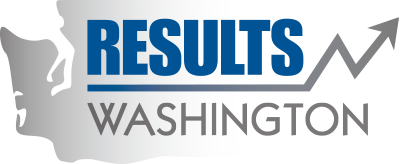Archived: Increase Key Sector GBI Percentage
- April 2016 Supplemental Report
- January 2016 Supplemental Report
- December 2015 Supplemental Report
- November 2015 Supplemental Report
- September 2015 Supplemental Report
- August 2015 Supplemental Report
- July 2015 Supplemental Report
- June 2015 Supplemental Report
- May 2015 Supplemental Report
- April 2015 Supplemental Report
Washington has strengths and high employment concentration in industrial sectors that have grown large enough to develop supportive clusters and that are strategically important for the state economy. These sectors include: aerospace, agriculture, military and defense, clean technology, life sciences, maritime, forest products, and information communications technology. Key industry sectors in the state have the capacity to grow and generate additional quality jobs as well as serving as magnets for further development.
Washington's sector-based economic development strategy is a reflection of the fact that we face intense international and interstate competition for good jobs and growth in these sectors can have outsize economic impacts because many clusters in Washington have higher than average wages, use cutting edge technology and are in growing industries; also, such clusters can help draw new firms to start up, relocate or branch out in the state.
GBI growth for the sectors increased by 2.5 percent from 2015 to 2016. This is below the rate needed to be on track to meet the 2020 goal of 31.9 percent growth in our key business sectors.
Aerospace Sector
Capitalize on the decision to build the 777X and its carbon fiber wing in Washington by helping local companies expand and attract new companies to the state.
Diversify the industry by supporting emergent sub-sectors of the industry, including UAV/UAS, space exploration, MRO, and aviation biofuel.
Develop strategy to compete for future commercial aerospace development including the possibility of the new middle of the market aircraft Boeing is considering.
Clean Technology Sector
Attract investment to the state by offering businesses a range of incentives, including business and occupation tax reductions and credits, and sales and tax exemptions.
Develop global partnerships for research and development as well as deployment of technology such as the partnership with Tsingua University, in China, and the University of Washington.
Leverage opportunities for commercialization programs with Universities and institutions such as Pacific Northwest National Laboratories.
Information and Communication Technology Sector
Start closing the skills gap and develop the workforce needed to advance our leadership in this sector.
Put high-tech entrepreneurship at the top of the state’s agenda.
Invest in apprenticeship training programs such as Apprenti and pre baccalaureate certifications.
Develop strategic global corporate partnerships to increase availability of capital funds for Washington startup firms.
Life Sciences and Global Health
Retain current companies and organizations and recruit companies and organizations to Washington State.
Attract and retain nationally ranked researchers to Washington State.
Increase capital investment in the life science and global health sector.
Increase STEM related degrees obtained from our universities.
Maritime Sector
Market and communicate the importance of the sector to the state’s economy.
Promote policies and actions that sustain the current health of the industry and set a strong base for future growth.
Work with existing training and education resources to develop a clear career pathway to jobs in this sector.
